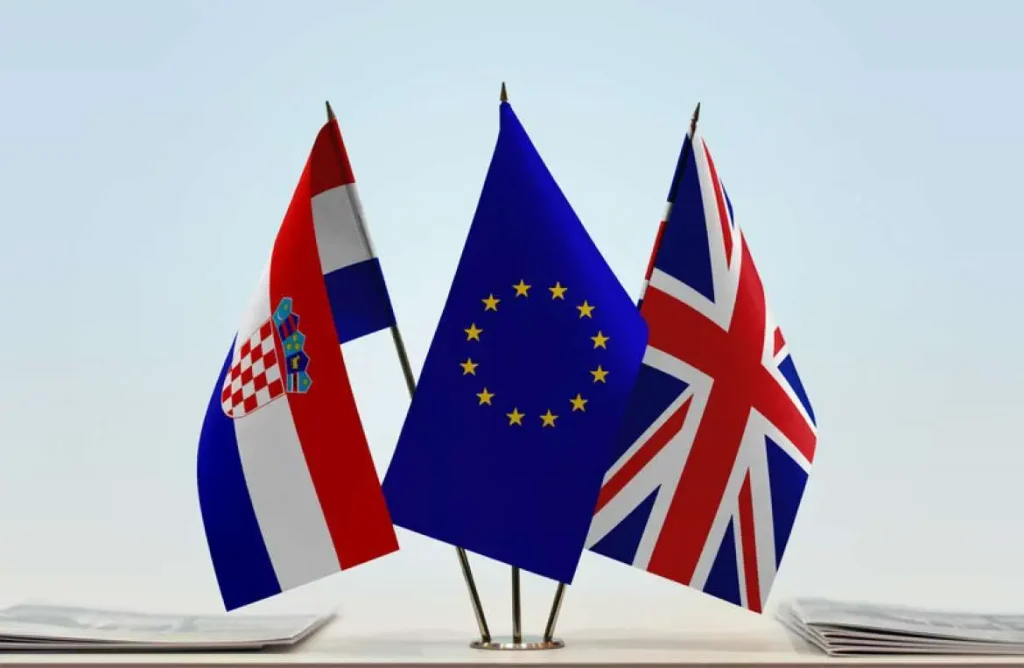I have been covering residence rights, citizenship and all things Brexit for a while now, and with a number of in depth articles easily accessible and regularly updated, I thought it would be best to do a quick and simple one on how Brexit Brits in Croatia can make sure their residence and other related rights go unaffected now the UK’s transition period has drawn to a close.
I recently wrote an article explaining the ins and outs of the Withdrawal Agreement, you can read that here. Now let’s get down to business by outlining some basic points which can be read about in more detail in the aforementioned link.
1) If you were resident in Croatia (legally) before the end of the UK’s transition period – you are protected by the Withdrawal Agreement and can stay, enjoying broadly the same rights as you did before.
2) You do not need to apply for a new residence status, you are merely registering the fact that you are covered by the Withdrawal Agreement and as such as obtaining a new ID card which no longer has the letters EGP (Europski gospodarski prostor/European Economic Area) on it, but Article 75 (the law you are now protected by). The system is one of declaration pursuant to Article 18, paragraph 4 of the Agreement.
3) Once you have permanent residence as a British citizen covered by the Withdrawal Agreement, you are free to be absent from Croatia for five consecutive years without losing any of your rights.
4) Family members (such as current spouses and registered partners, parents, grandparents, children) may join their family member in the future.
5) Children born after the transition period will also be protected by the Withdrawal Agreement, wherever they are born.
Now that is out of the way, let’s look at just what you need to do. As explained by MUP, you are protected and covered by the Withdrawal Agreement but you still need to take a few administrative steps which should be painless (I know, I can hear the laughter). Let’s look at what you need to do.
The residence status of British nationals and their family members will be regulated pursuant to Article 18, paragraph 4 of the Agreement (which is a declaratory scheme). Accordingly, British nationals and their family members who are subject to the Withdrawal Agreement will not be obligated to apply for a new residence status as a requirement for their legal residence in Croatia. Rather, a declaratory system will be applied on the basis of which British nationals and their family members will have a residence status on the basis of the very fact that they meet the conditions laid down in the Agreement and will continue to have the said status for as long as they meet these conditions. This means that their residence status is not subject to the constitutive decision of the competent authority.
The conditions of residence are, and will remain, the same as those under current European Union law on free movement. In essence, British nationals meet these conditions if they are any of the following:
1) Workers or are self-employed.
2) Are enrolled at a private or public establishment, for the principal purpose of following a course of study, including vocational training; and have health insurance and sufficient resources for themselves and their family members.
3) Have sufficient resources and health insurance.
4) Are family members of another person who meets these conditions.
5) Have already acquired the right of permanent residence and are therefore no longer subject to any conditions.
So how do Brexit Brits go about registering for their new ID cards under this declaratory scheme?
If you already hold permanent residence in Croatia:
If you’re already a permanent resident (you have lived in Croatia lawfully for five years or more), you are no longer subject to any conditions and you will need to send a copy of your valid passport or travel document (this can be an ID card but if you’re British you’ll know this isn’t really a thing in the UK) and fill in Form 9B. You will need to send these documents in PDF form via email to the administrative police station responsible for your area/for the area in which your permanent residence is registered.
If you have acquired the right to permanent residence but have never registered and as such don’t have a residence card, you will need to demonstrate sufficient evidence that you have lived in Croatia for five years or more and still do.
A list of administrative police stations and their email addresses and contact numbers can be found at the bottom of this page.
If you hold temporary residence in Croatia:
If you’re a temporary resident (you have lived in Croatia lawfully for less than five years), you will need to fill in Form 7B and send a copy of your valid passport/travel document, you will need to send these documents in PDF form via email to the administrative police station responsible for your area/for the area in which your temporary residence is registered.
If you have never registered and as such don’t have a temporary residence card, you will need to demonstrate sufficient evidence that you have lived in Croatia in line with the EU’s freedom of movement laws and still do.
A list of administrative police stations and their email addresses and contact numbers can be found at the bottom of this page.
If you’re the family member of a British national covered by the Withdrawal Agreement:
If you’re the family member of a British national (you obtained the right to live in Croatia as the family member of an EEA citizen) you will need to fill in Form 8B and send a copy of your valid passport/travel document, you will need to send these documents in PDF form via email to the administrative police station responsible for your area/for the area in which your residence as the family member of an EEA/British national is registered.
If you have never registered and as such don’t have a temporary residence card, you will need to demonstrate sufficient evidence that you have lived in Croatia in line with the EU’s freedom of movement laws as the family member of an EEA/British and still do.
A list of administrative police stations and their email addresses and contact numbers can be found at the bottom of this page.
I don’t have a residence card/resident status, what documents should I present?
A work contract, certificate of employment issued by the employer (clearly stating employment period, OIB, seat of the company), proof of self-employment.
Proof of enrollment at an establishment for following a study, including vocational training.
Rental agreement or property sale contract, or title deed.
Utility bills, bank statement covering certain period.
Proof of covering health insurance costs/using health insurance.
Documents proving family ties.
Narodne Novine also explains what documents are needed if you want to read it in Croatian.
British citizens living in Croatia have until the 30th of June 2021 to register. They will not lose any rights if they fail to do so, but they may face an administrative fine if they fail to meet the deadline.










